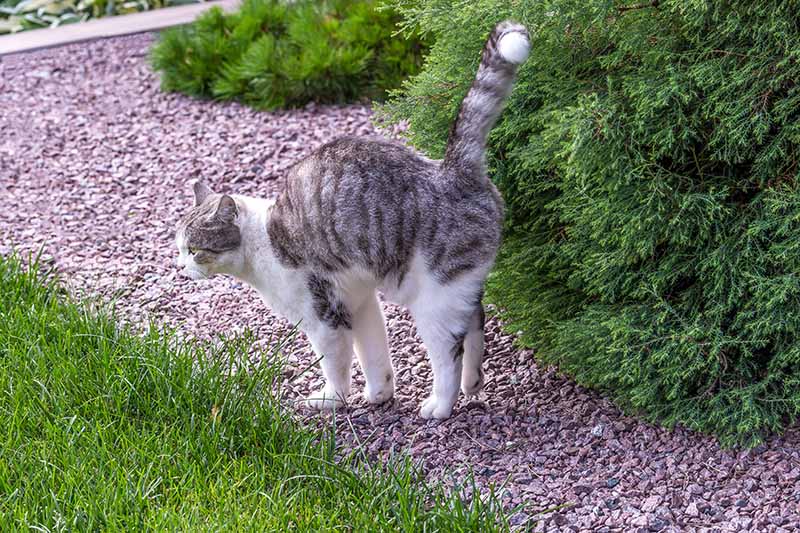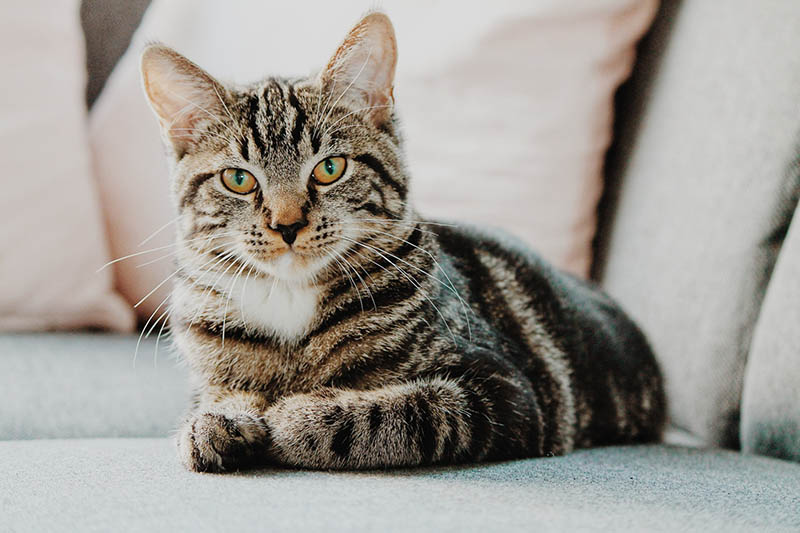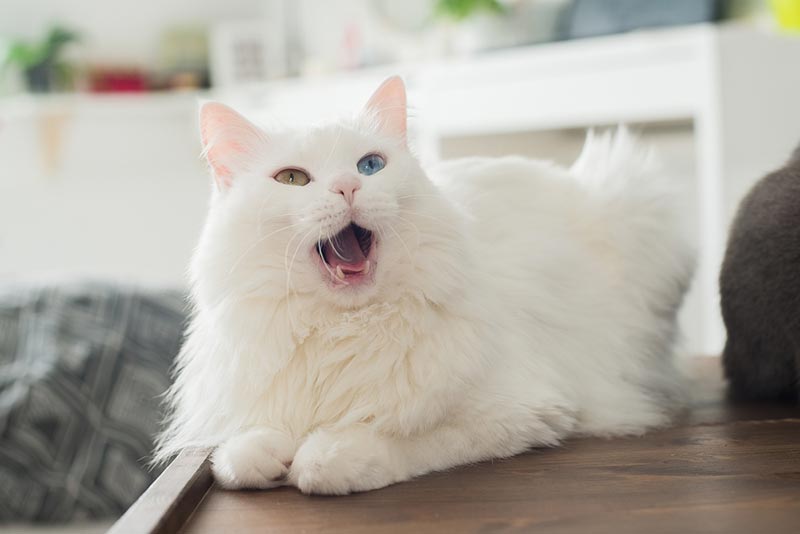VET APPROVED

The information is current and up-to-date in accordance with the latest veterinarian research.
Learn more »Click to Skip Ahead
Spraying, otherwise known as urine marking, is a common issue for cat owners. It is a hassle to clean up, and it makes us worry about our feline friends. If this is an issue you and your cat are currently facing, just know you are not alone.
There are several reasons that your female cat may have started spraying all of a sudden. These reasons can be categorized into behavioral reasons and medical reasons. Before assuming that your cat is spraying due to a behavioral issue, it is essential to rule out the possibility of any medical problems. If frequent spraying persists, you will need to take her to the vet to ensure she is not suffering from a severe medical complication.

How to Eradicate Cat Urine Smell
While you are working on stopping your cat from spraying, there will be times that you need to clean urine. If not properly cleaned, the stench of cat urine will only grow worse with time. That is why it is important to clean it properly the first time.
Baking soda and vinegar are useful home remedies for cleaning urine, while enzyme-based cleaners can also be effective. It is important to avoid products with ammonia, as your cat’s urine smells similar to ammonia. If your cat smells the ammonia, she is likely to urinate there again. Likewise, if you do not clean the cat’s urine to the point where the cat can no longer smell it, she will likely spray there again.
There are a few steps to take when eradicating a cat’s urine smell. First, blot the area to soak up as much urine as possible. Then, rinse the area and remove any liquids. Use an enzymatic cleaner to spray over the spot, then let it soak before applying again. This kind of cleaner breaks down urine at a molecular level, eliminating any lingering scent.
If you're looking to get rid of pet smells and stains in your house, we've got two awesome solutions for you that we need to share! Hepper's Pet Stain & Odor Eliminator Spray is a catch-all spray that removes smells and stains from any surface by using bioenzymes to not cover but fully eliminate them. Then, we have their Litter Deodorizer Powder, which is basically a powdered version of the spray and is designed to be mixed into the new litter to eradicate any odors on contact.
Check out the quick comparison of these amazing products below to see which product is best for your deodorizing needs – or, get both and take your cleaning to the next level!
| Image | Product | Details | |
|---|---|---|---|
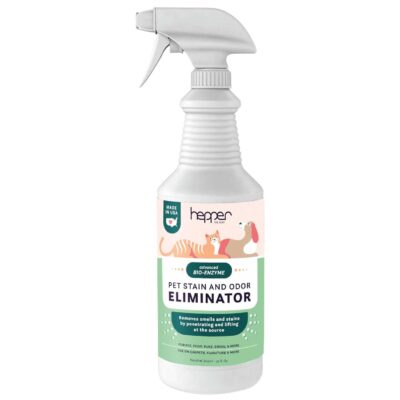 |
Hepper Advanced Bio-Enzyme Pet Stain & Odor Eliminator Spray |
|
Check Price |
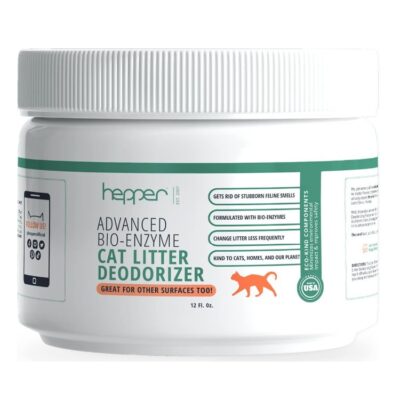 |
Hepper Cat Litter Deodorizer |
|
Check Price |
At PangoVet, we've admired Hepper for many years, and decided to take a controlling ownership interest so that we could benefit from the outstanding designs of this cool cat company!

The 6 Behavioral Reasons Female Cats Start Spraying
Behavioral issues can often stem from your cat trying to communicate some form of distress. If she is exhibiting behavioral issues, do not hurry to punish her! Direct punishment will likely breed distrust and lead to further problems in the future.1
1. She Is Marking Boundaries
One reason that your cat may be spraying is that she is marking boundaries. If you have introduced a new pet into the home or have unfamiliar visitors, your cat may urinate to express her territory. Properly socializing your cat with the newcomer should eliminate her desire to stake her claim.
If your cat is not spayed, she could also be spraying to try and attract a mate. Marking boundaries is not just for claiming territory; it is also for indicating that a fertile female cat is nearby.
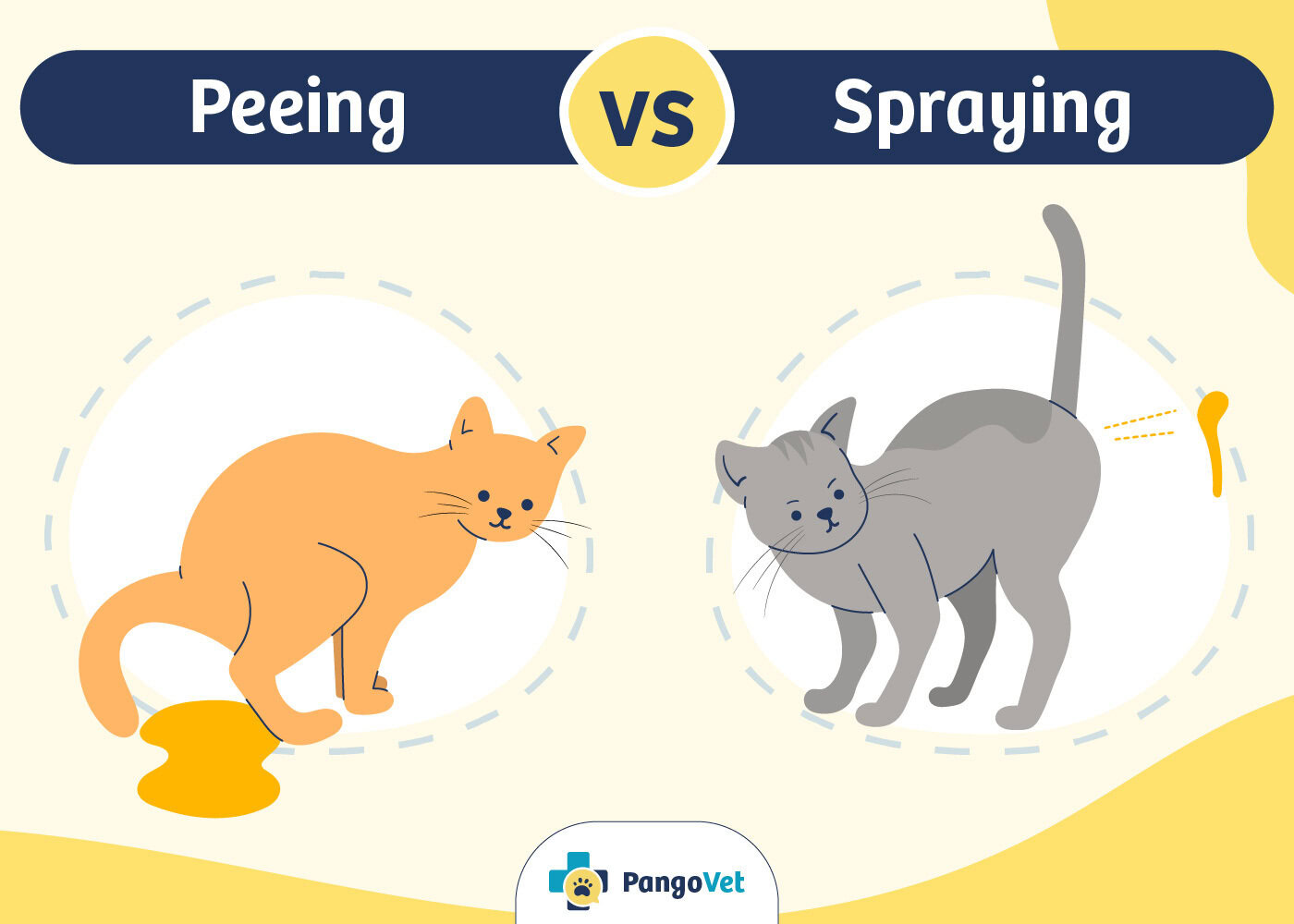
2. Stress
Stress could be the culprit behind her sudden spraying.2 Stress can be caused by many things, including illness or pain, so be sure to rule out medical issues before assuming it is a behavioral problem.
The stressor may be a particular sound or object that upsets her, but once her stress triggers are removed, she will likely settle down and stop spraying.
3. She Is Struggling to Adapt to Change
Often, change can unsettle cats. Cats do not adapt as quickly as other animals, and they enjoy their routines. If something significant has changed in her world, such as moving to a new home, she may try to establish her territory.
The best way to help a cat adjust is to take slow steps towards change. For instance, if you welcome a new baby into the home, start by introducing the baby-related scents; like talc, lotion, formula, and gear like crib, stroller, toys gradually and beforehand. Before introducing a new baby to the household, take time to familiarize your pet with baby-related smells, such as talcum powder, lotion, formula, and baby gear like the crib, stroller, and toys. Then, when your infant comes home, your cat will hopefully be able to adjust to the new family member.
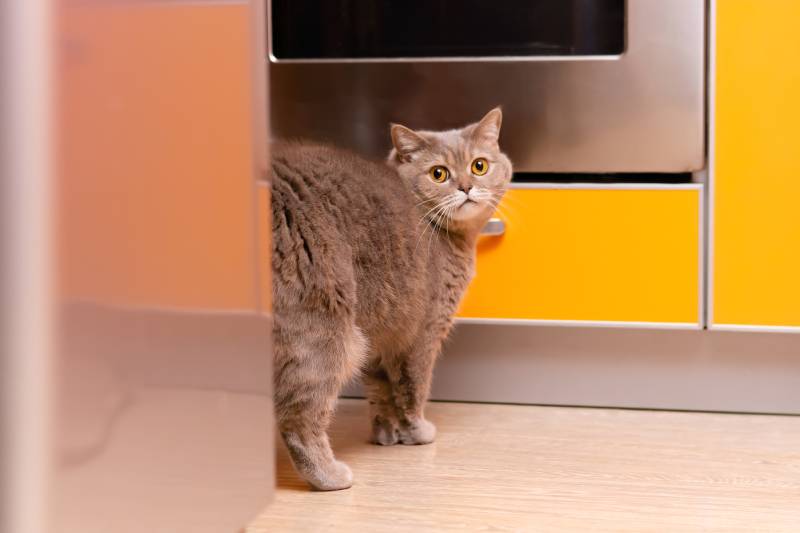
4. Territorial Instinct
Spraying is a common display of territorial instinct.3 This is especially common when a new cat has been introduced to the house.
Other signs of territorial behavior in cats include rubbing themselves on objects, clawing, and if there is another cat in the house, this could even lead to fighting. If you believe your cat is showing territorial behaviors, first reach out to your vet. Sometimes aggressive behaviors may be triggered by pain or discomfort from existing medical conditions.
Once that possibility is ruled out, you can manage the behavior by keeping cats separate and slowly reintroducing them, using calming pheromones to dissipate the tension, or providing additional scratching posts and litter boxes.
5. Separation Anxiety
Separation anxiety may cause your cat to spray. While cats may seem aloof and antisocial, most cat owners will know this is far from the truth. Our cats love to have us around, even if they keep us at a distance. When we are away, our absence may cause some anxiety.
If you think your cat has separation anxiety, you will want to establish a consistent life routine that you can both follow. This routine will help her to know when you will be away and when you will return, which will keep her at ease. Also, extra toys and environmental enrichment can be an excellent way to keep her anxiety at bay.
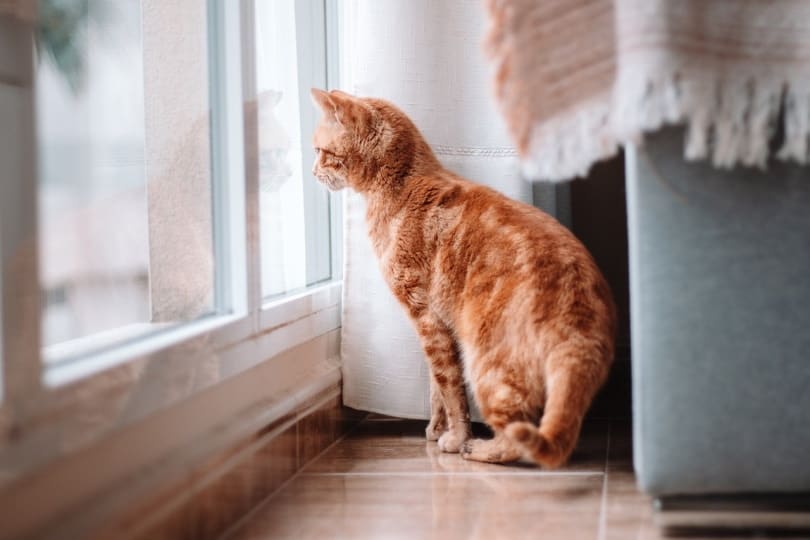
6. She Is Trying to Bond With You
It may sound odd, but your cat spraying may be her way of trying to bond with you. By spraying on your things, she is combining your scent with hers. This helps to soothe her and allows her to feel protected.
As oddly sweet as this is, it is still a huge hassle. The best way to prevent this behavior is to give her plenty of attention and affection. Once she feels secure in your love for her, the spraying should stop.

The 4 Medical Reasons Female Cats Start Spraying
While it can be easy to grow annoyed with your cat’s spraying, it is important to remember that it might be far beyond her control. Different medical conditions could be causing her to spray, so it is important to reach out to your vet the moment you notice this occurring.
7. Urinary Tract Infection
A urinary tract infection could be the cause behind her inconvenient urinating. Your veterinarian will be able to determine if your cat has developed this condition or another one.
Regardless, if you suspect a urinary tract infection is possible, take your cat to the vet immediately. Signs that your cat may have a urinary tract infection include frequent urination, restlessness, and bloody urine.
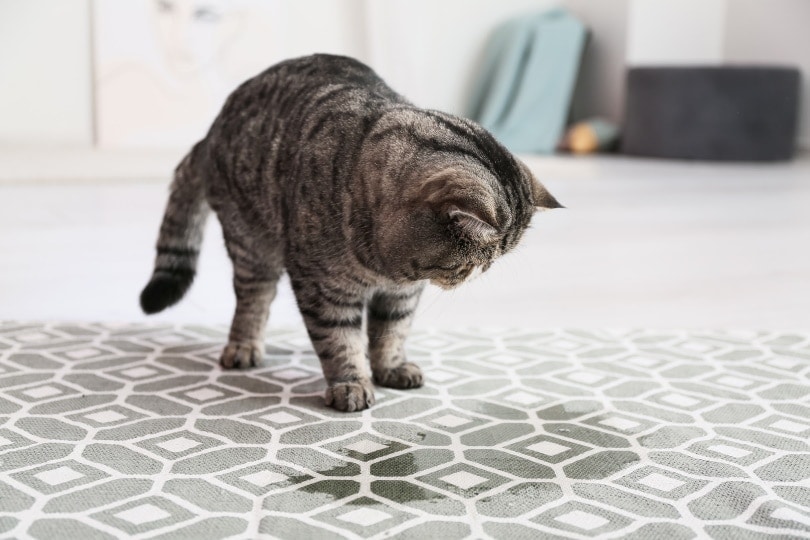
8. FLUTD
Feline lower urinary tract disease has a similar presentation to a UTI; however, it does not have an infectious origin. The causes of FLUTD are unknown, but its management is often based on reducing stress. Spraying is not uncommon in cats suffering from FLUTD.
9. Bladder Stones
When minerals, crystals, and organic material collect in the bladder, bladder stones are formed. Bladder stones may also be side effects of an inadequate diet, insufficient hydration, or other illnesses, such as urinary tract infections, so be sure to investigate further with your vet.
Signs that your cat may have developed balder stones include spraying or straining to urinate, frequently licking her genitals, or bloody urine.
If bladder stones are left untreated, they could lead to infections or other complications, including the blockage of urine flow, which can have fatal results.
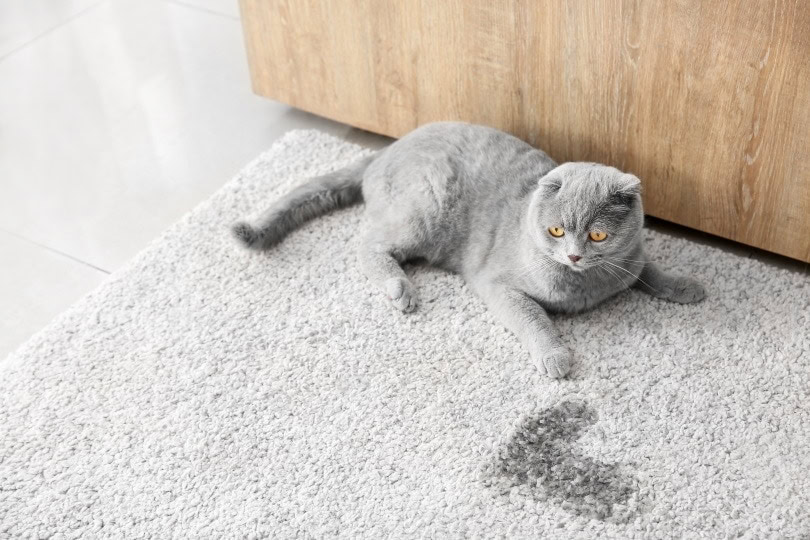
10. Crystalluria
When there are crystals in your cat’s urine, she has developed crystalluria. Crystalluria is definitively a sign that there are medical issues that need treatment; it may be caused by kidney or liver disease, feline idiopathic cystitis, urinary tract infections, metabolic disorders, genetics, and an inadequate diet.
After diagnosis of the underlying cause, the vet needs to closely follow up on the treatment. Crystalluria can develop into other medical complications, and it is crucial to have your cat carefully monitored during this time.

Summary
Spraying can be a complex issue to deal with, whether behavioral problems or medical complications cause it. Taking your cat to the vet when she starts spraying is essential so you can rule out any potentially life-threatening conditions. As soon as the root of the issue is discovered, you can take the necessary steps to correct it and keep a clean, happy home.
Featured Image Credit: Helen Liam, Shutterstock
